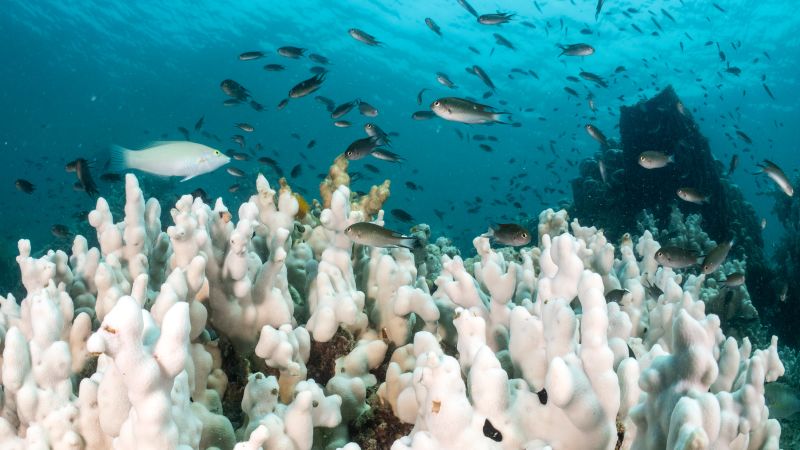
5 things to know for April 24: Coral reefs, Russia-Ukraine, FEMA, Harvard, Uvalde
CNN
CNN’s 5 Things brings you the news you need to know every morning
Are you suddenly in the mood to see “Conclave”? You’re not alone. Since Pope Francis died on Monday, viewers have flocked to Amazon Prime Video to watch the film, which won an Oscar for best adapted screenplay and stars Ralph Fiennes, Stanley Tucci, Isabella Rossellini and John Lithgow. Although the story is fictional, the movie does offer some insight into the highly secretive voting process the Roman Catholic Church utilizes to choose a new pontiff. Here’s what else you need to know to Get Up to Speed and On with Your Day. Warming oceans have caused the worst coral reef bleaching event in recorded history. According to a new report, harmful bleaching has grown to include 84% of the ocean’s reefs — and it’s not clear when the crisis will end. Last year was Earth’s hottest year on record and most of that heat went into the oceans. Such high temperatures are deadly to corals, which protect coastlines from erosion and storms. Coral reefs are also known as the “rainforests of the sea” because they support high levels of biodiversity. “We’re looking at something that’s completely changing the face of our planet and the ability of our oceans to sustain lives and livelihoods,” Mark Eakin, corresponding secretary for the International Coral Reef Society, said. Although efforts are underway to conserve and restore coral, scientists say it’s essential that we reduce emissions from burning the fossil fuels that are warming the planet. Hours after President Donald Trump launched a fresh tirade against Ukrainian President Volodymyr Zelensky and accused him of harming the peace talks, Russia launched a deadly wave of attacks on Kyiv. Drone and missile strikes killed at least nine people and wounded more than 70 others in the Ukrainian capital early this morning. Rescue teams are still searching for people who are believed to be trapped under the rubble of one home that was destroyed in the blasts. As part of the proposed peace deal to end the war, the US suggested that Ukraine recognize Russian control of Crimea, a Ukrainian peninsula that was illegally annexed by the Kremlin in 2014. Zelensky said Ukraine could not accept that condition because doing so goes against his country’s constitution. In a post on Truth Social, Trump said Zelensky’s position was “very harmful to the Peace Negotiations with Russia.” As extreme weather events become increasingly damaging and costly, the Trump administration wants to shift the burden of disaster response from the federal government to the states. Six months after Hurricane Helene, North Carolina is still trying to recover. Four days into his second term, Trump visited the region and promised to help with rebuilding. But on April 1, the CDC team that was planning to travel to the area to survey residents about their recovery needs was fired. The administration also denied Arkansas’ request for federal aid in response to a recent outbreak of severe storms and tornadoes that left more than 40 people dead. Both Trump and Homeland Security Secretary Kristi Noem have made it clear they want to eliminate FEMA, which helps people find temporary housing and provides public assistance after natural disasters. In the coming weeks, FEMA is expected to lose about 20% of its full-time staff due to DOGE’s staff reduction efforts. The Trump administration’s battle against higher education institutions is being quietly run by a Justice Department-led task force that’s headed by former Fox News personality and civil rights lawyer Leo Terrell. The Task Force to Combat Anti-Semitism, which also includes top Trump official Stephen Miller, as well as representatives from the Departments of Justice, Education, Health and Human Services, Homeland Security, Treasury and the GSA, allegedly aims to crack down on antisemitism on college campuses. The administration has ordered numerous schools to change their hiring and admission requirements, eliminate diversity, equity and inclusion programs and alter rules for on-campus protests or face major losses of federal funding. Harvard has resisted these demands and filed a lawsuit claiming the government’s actions violate the First Amendment.

 Run 3 Space | Play Space Running Game
Run 3 Space | Play Space Running Game Traffic Jam 3D | Online Racing Game
Traffic Jam 3D | Online Racing Game Duck Hunt | Play Old Classic Game
Duck Hunt | Play Old Classic Game











